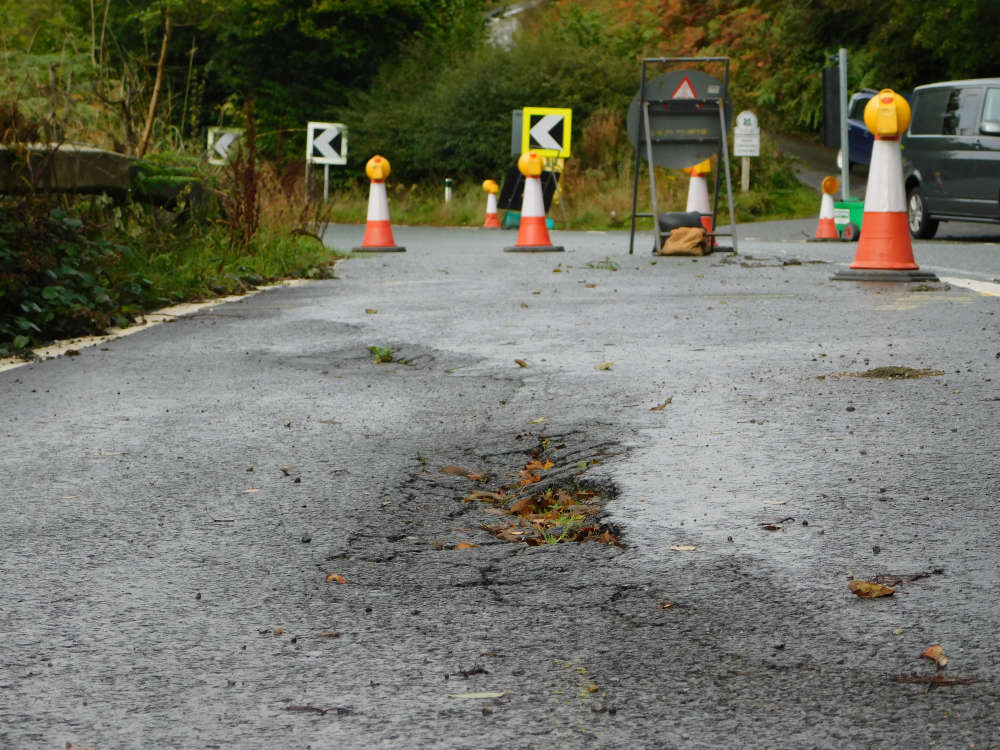
Derbyshire is getting significantly more money to help repair potholes and some larger road projects but it now faces the reality of its lack of ability and capacity to carry out the work.
A very real danger posed by the major increase in budget for Derbyshire County Council road repairs and projects is that the schemes cannot be delivered on time and risk losing funding.
The authority details this in a report to be discussed by the Reform cabinet this week, in which it explains how it will have to lean even more significantly on private contractors and companies to help deliver road projects, due to the rapid surge in spending.
A major increase in spending is welcomed by all political persuasions but the historic and ongoing reductions and axing of council budgets has left them heavily constrained in terms of handling multiple large schemes at the same time, at pace, with only so many specialists remaining and on hand to keep across all that is wanted to be delivered – all at once.
This is the dilemma facing local government in many different arenas but perhaps none more so than in highways, which is for most of the public the face of their county council – dealing with the public’s No 1 priority: potholes.
Councils are given money for road schemes in different pots of funding, some of which is ring-fenced, and then some projects have had money set aside through earmarked funds relating to political decisions.
However, spending is also significantly affected by ever-moving priorities, largely governed by the weather, with heavy rainfall or colder temperatures leading to a reshuffle in which areas need repairing first or which new landfill or piece of infrastructure needs immediate attention.
Derbyshire has been calling for more highways maintenance funding, which had stood at £27 million but is increasing to £37 million for the year, but this will not stretch to anywhere near enough to repair the 200+ landslips in the county.
Just one, the numerous landslips on the Snake Pass route between Manchester and Sheffield through northern Derbyshire, would eat this entire annual budget, with the route needing potentially “hundreds of millions of pounds”.
What is made clear is that more money for repairs and long-awaited road projects is not an immediate solution on its own.
The council says if it does not step up its partnerships with private sector companies and contractors the new budget and workload would “greatly exceed the capacity of the existing in-house resources and arrangements to either deliver or provide oversight for external providers to deliver”.
It says: “This will mean the council will be unable to deliver all of its current and future capital programmes within the required timescales.
“This could lead to visible and structural deterioration of the network, reputational damage with residents, stakeholders and combined authority, the possible loss of external funding and the raising of safety issues.”
The council’s funding for capital schemes – building projects – has risen from £17 million to £40 million since 2021.
With the creation and redistribution of funding through the East Midlands Combined County Authority, this is set to grow to £70 million for capital projects during this financial year, it says.
The council wants to create a formal construction partnership with a large number of private companies to help it deliver its growing caseload, which it says will take 1-2 years to procure and commission.
It says: “In developing this approach, it is of note that the local authority highways sector is still an attractive market for the private sector but, within the next five years, a larger number of local highway authorities will be coming to the end of their current highways delivery arrangements with their providers, be they construction, design or both.
“It is essential that the council makes itself as an attractive potential partner as possible (ways of working, types of work, location/accommodation, facilities, systems, etc) to the private sector market.
“With an extant and future capital budget of approximately £70 million, the use of national and local frameworks will support the council’s mixed economy model to deliver more than the current capacity that the in-house design and construction services can currently deliver.”


 Space race! Borough Council offers R&D boost for satellite and F1 firm
Space race! Borough Council offers R&D boost for satellite and F1 firm
 New Chief Executive recommended by Derbyshire County Council
New Chief Executive recommended by Derbyshire County Council
 Change to Employment Rights Bill a ‘step forward’ says Chamber
Change to Employment Rights Bill a ‘step forward’ says Chamber
 PCC urges residents to leave e-scooters off the shopping list
PCC urges residents to leave e-scooters off the shopping list




